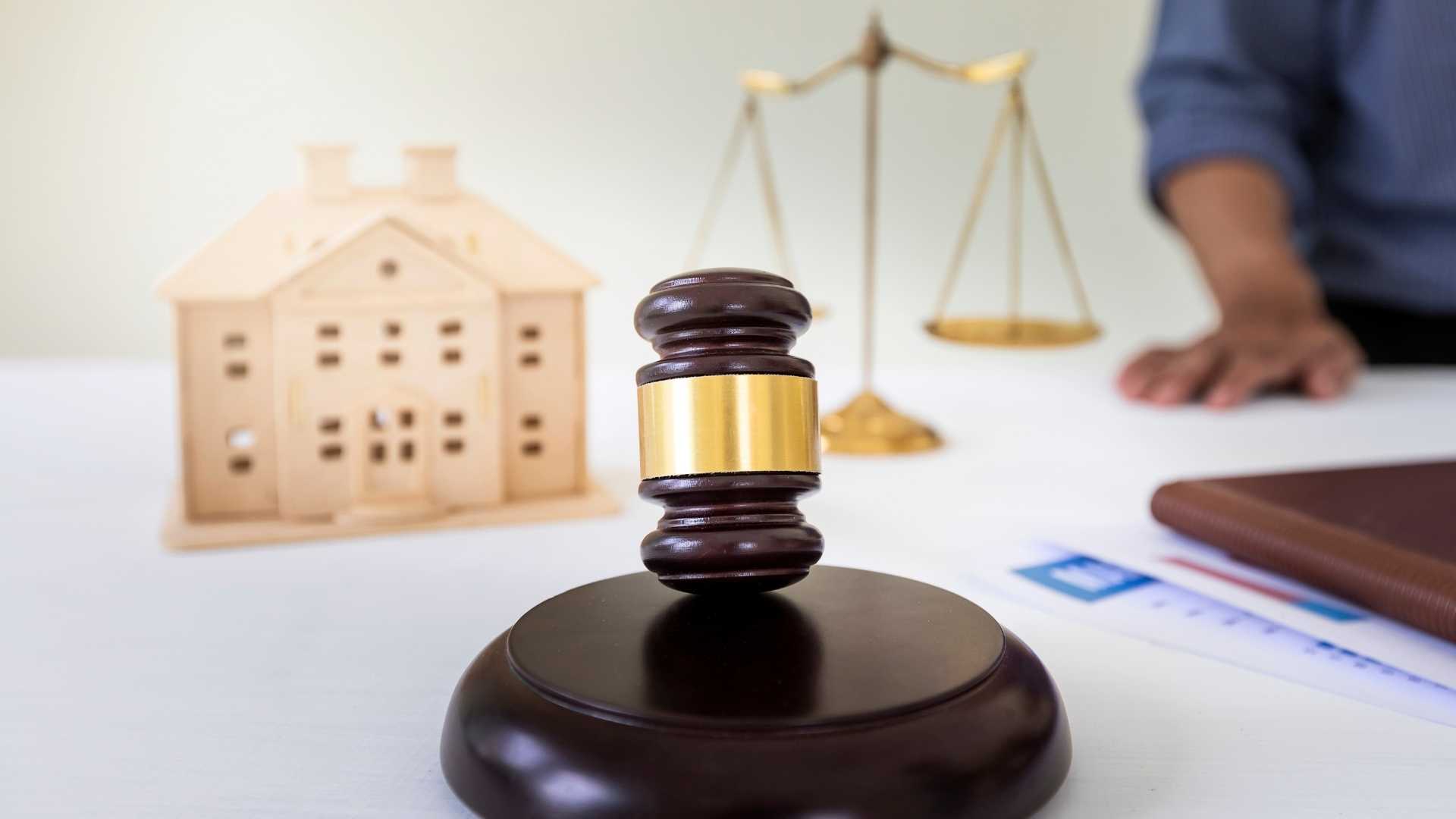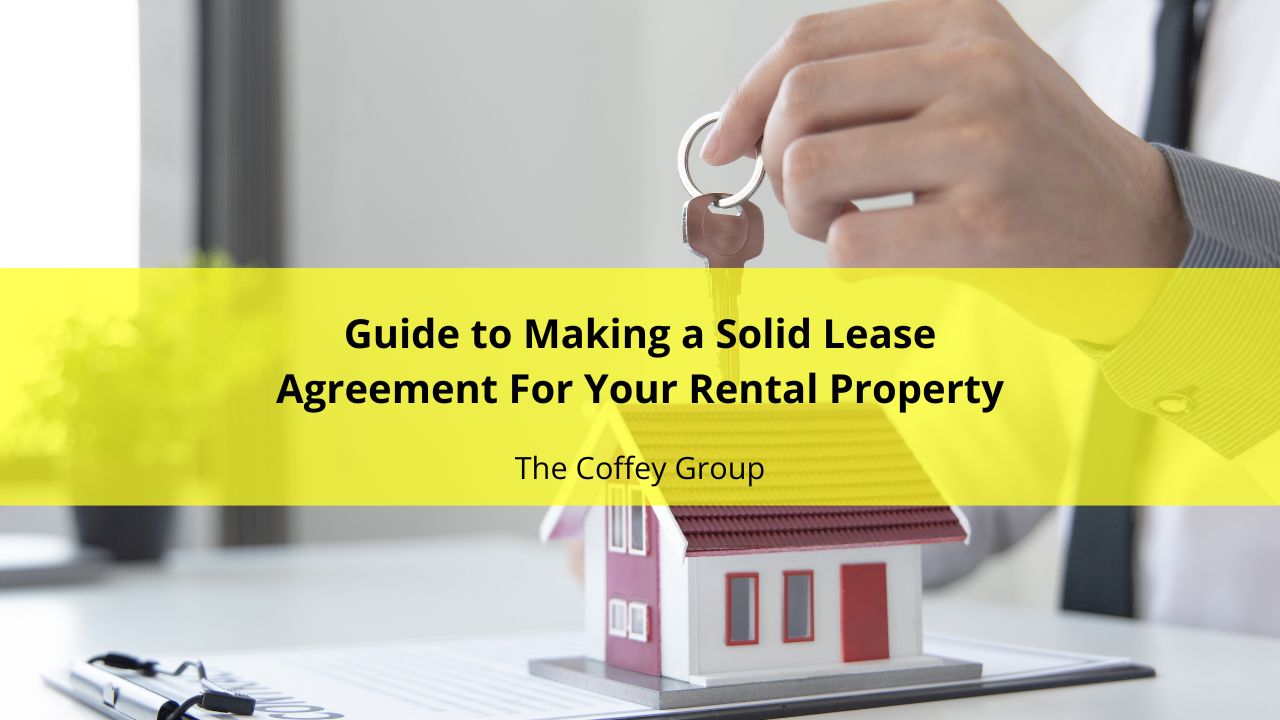Key Takeaways
- A well-structured lease agreement should comply with state and local laws, clearly define terms, and include essential clauses to protect both landlords and tenants.
- Key lease provisions such as rent payment terms, security deposits, maintenance responsibilities, and termination policies help prevent disputes and ensure smooth tenancy.
- Partnering with a professional property management company can simplify lease creation, ensure legal compliance, and streamline tenant management for landlords.
Creating a strong lease agreement is one of the most important steps in protecting your rental property and ensuring a smooth relationship with your tenants. A lease is a legally binding document that outlines the rights and responsibilities of both the landlord and the tenant.
In this article, we at The Coffey Group will guide you on how to craft a legally sound lease! Here are strategies for creating a solid lease:
Get in Touch with our Management Team!
Understand the Legal Framework
Before you begin writing your lease, it's crucial to understand your state and local laws. Lease agreements must comply with landlord-tenant laws, which can vary by location. These laws regulate things like security deposits, late fees, notice periods, and rent control.
Having a basic understanding of the legal landscape will help you avoid clauses that could be unenforceable or even illegal. Consult your state’s landlord-tenant laws or seek legal advice to ensure your lease complies with current regulations.

Start With Basic Information
Your lease agreement should begin with a clear identification of the parties involved. Include the full legal name of the landlord and the tenant. Also, include the property address and a brief description of your Florida rental unit.
Make sure to list the terms of the lease. Is it a fixed-term lease, or is it a month-to-month agreement? Clearly defining the duration helps manage expectations and provides structure.
Include Vital Clauses
The following elements should appear in your lease to protect you, your property, and tenants:
Rent Details and Payment Terms
Be explicit about how much rent is, when it's due, and how it should be paid. Include late fees, grace periods, and bounced check fees if applicable. Specify acceptable forms of payment, such as checks, online payments, or money orders.
Also, include rules regarding rent increases. Having a clause that outlines when and how rent can be raised can give tenants clarity.
Security Deposits and Fees
Security deposits protect you in case of damage or unpaid rent. The lease should state the deposit amount, where it will be held, and under what conditions it will be refunded. Be specific about what constitutes damage versus normal wear and tear.
Also include any non-refundable fees, such as cleaning or pet fees, and make sure they comply with local laws. Transparency in fees fosters trust and helps avoid disputes later on.

Entry and Access Rights
As a landlord, you have the right to enter the property for certain reasons, such as inspections or repairs. However, to protect the tenant’s right to privacy, you must give advance notice. Your lease should specify the notice period and valid reasons for entry.
Rules and Restrictions
To maintain the value of your property and avoid complaints, it’s important to include rules about tenant behavior. These rules can cover noise levels, smoking, parking, and guest policies. If your property is part of an HOA or community with specific rules, include those in the lease or attach them as an addendum.
Termination and Renewal Terms
Every lease should include clear guidelines for ending or renewing the lease. Explain how much notice either party must give before ending the lease. For fixed-term leases, clarify what happens at the end of the term. Including move-out procedures can make the transition smoother.
Maintenance and Repairs
One of the most common sources of landlord-tenant conflict is maintenance. Your lease should explain who is responsible for what. Typically, landlords handle major repairs and maintenance, while tenants take care of minor upkeep like keeping the unit clean.
Include a section that outlines how tenants should report maintenance issues and how quickly you aim to respond. You might also want to prohibit tenants from making unauthorized repairs or modifications.

Consequences for Violations
When renting out your home, make sure to include consequences for violating lease terms. This can range from written warnings to eviction. The lease should outline what constitutes a breach and what steps will be taken if it occurs. Make sure your policies are consistent and that any actions you take are documented.
Addenda and Special Clauses
You might need to include additional documents or clauses depending on your property. Examples include pet agreements, lead paint disclosures, or clauses for furnished rentals. These become part of the lease and must be signed by both parties. Be sure they are clear and legally compliant.
Avoid Common Mistakes
Some of the most frequent mistakes landlords make in lease agreements include using generic templates that don’t comply with state laws, failing to address local rental requirements, and leaving out important details.
It’s common to forget to update the lease as laws change or property policies evolve. Make it a habit to review and revise your lease at least once a year or before a new tenant moves in.
Work with Professional Property Managers!
Why Work With a Property Management Company
While it’s possible to create a lease agreement on your own, working with a professional property management company can make the process more efficient and legally sound. Property managers are experienced in drafting leases that reflect best practices. They stay updated on legal changes and can tailor agreements to your specific property and situation.
A property management company can also handle tenant screening, rent collection, maintenance requests, and lease enforcement. This full-service approach reduces your workload and gives you peace of mind that your investment is protected.
Bottom Line
A lease agreement is the foundation of your rental relationship. Taking the time to craft a detailed, legally compliant lease protects your rental business and tenants. To ensure clarity and compliance, it’s best to work with a professional property management company. Contact The Goffey Group if you need help managing your rentals!


